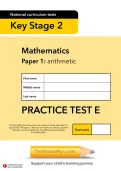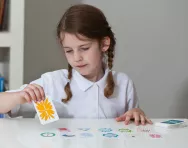Important update from TheSchoolRun
For the past 13 years, TheSchoolRun has been run by a small team of mums working from home, dedicated to providing quality educational resources to primary school parents. Unfortunately, rising supplier costs and falling revenue have made it impossible for us to continue operating, and we’ve had to make the difficult decision to close. The good news: We’ve arranged for another educational provider to take over many of our resources. These will be hosted on a new portal, where the content will be updated and expanded to support your child’s learning.
What this means for subscribers:
- Your subscription is still active, and for now, you can keep using the website as normal — just log in with your usual details to access all our articles and resources*.
- In a few months, all resources will move to the new portal. You’ll continue to have access there until your subscription ends. We’ll send you full details nearer the time.
- As a thank you for your support, we’ll also be sending you 16 primary school eBooks (worth £108.84) to download and keep.
A few changes to be aware of:
- The Learning Journey weekly email has ended, but your child’s plan will still be updated on your dashboard each Monday. Just log in to see the recommended worksheets.
- The 11+ weekly emails have now ended. We sent you all the remaining emails in the series at the end of March — please check your inbox (and spam folder) if you haven’t seen them. You can also follow the full programme here: 11+ Learning Journey.
If you have any questions, please contact us at [email protected]. Thank you for being part of our journey it’s been a privilege to support your family’s learning.
*If you need to reset your password, it will still work as usual. Please check your spam folder if the reset email doesn’t appear in your inbox.
Top 10 ways to calm your child's fears about SATs



Prepare your child for SATs today
- Your guide to SATs
- KS1 & KS2 SATs revision courses
- SATs practice papers in English & maths
1. Just as important as agreeing a set time for your child to do revision each day is setting aside some time for your child to unwind and participate in activities they enjoy. So schedule regular breaks, which will help to motivate them.
2. Especially important to your child's ability to relax and get a decent night's sleep is ensuring that they stop doing work at least an hour and a half before bedtime, otherwise their mind will be too active for sleep.
3. As well as a comfortable study area stocked with stationery, set up a comfortable relaxation area, too. It can be filled with cushions and soft fabrics, with music and incense, and favourite toys and books.
4. Take your child on plenty of walks during their breaks. They help stimulate the mind and a blast of air will really refresh their brain cells.
5. Listen to your child's worries and anxieties and encourage them to be open with you. Plenty of hugs, reassurance and positive encouragement will go a long way to helping them to relax.
6. Help them to unwind at bedtime with plenty of relaxing bubble baths, soothing music and fun bedtime stories.
7. Don't give your child any sugary foods before bedtime. Hot milk is a great drink to help soothe and relax your child.
8. On the actual SATs day, make sure they arrive at school in good time so they don't feel rushed or stressed and give plenty of encouragement.
9. Model positive language and behaviour – never talk about ‘pass’ or ‘fail’.
10. Give your child something to look forward to after SATs, such as a day out or a special treat, regardless of their results.







